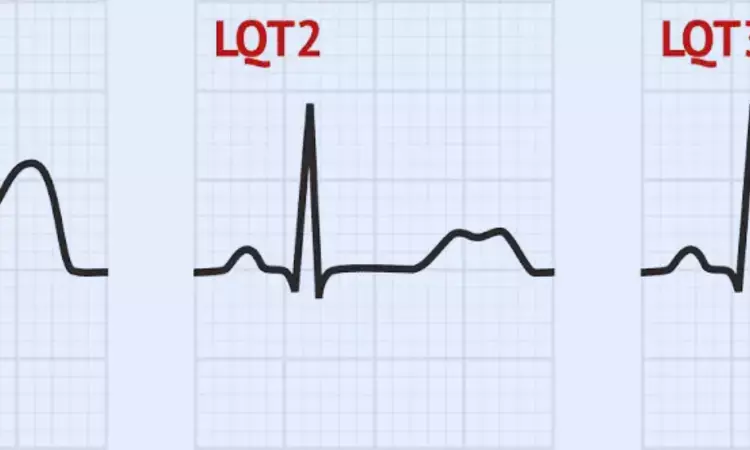- Home
- Medical news & Guidelines
- Anesthesiology
- Cardiology and CTVS
- Critical Care
- Dentistry
- Dermatology
- Diabetes and Endocrinology
- ENT
- Gastroenterology
- Medicine
- Nephrology
- Neurology
- Obstretics-Gynaecology
- Oncology
- Ophthalmology
- Orthopaedics
- Pediatrics-Neonatology
- Psychiatry
- Pulmonology
- Radiology
- Surgery
- Urology
- Laboratory Medicine
- Diet
- Nursing
- Paramedical
- Physiotherapy
- Health news
- Fact Check
- Bone Health Fact Check
- Brain Health Fact Check
- Cancer Related Fact Check
- Child Care Fact Check
- Dental and oral health fact check
- Diabetes and metabolic health fact check
- Diet and Nutrition Fact Check
- Eye and ENT Care Fact Check
- Fitness fact check
- Gut health fact check
- Heart health fact check
- Kidney health fact check
- Medical education fact check
- Men's health fact check
- Respiratory fact check
- Skin and hair care fact check
- Vaccine and Immunization fact check
- Women's health fact check
- AYUSH
- State News
- Andaman and Nicobar Islands
- Andhra Pradesh
- Arunachal Pradesh
- Assam
- Bihar
- Chandigarh
- Chattisgarh
- Dadra and Nagar Haveli
- Daman and Diu
- Delhi
- Goa
- Gujarat
- Haryana
- Himachal Pradesh
- Jammu & Kashmir
- Jharkhand
- Karnataka
- Kerala
- Ladakh
- Lakshadweep
- Madhya Pradesh
- Maharashtra
- Manipur
- Meghalaya
- Mizoram
- Nagaland
- Odisha
- Puducherry
- Punjab
- Rajasthan
- Sikkim
- Tamil Nadu
- Telangana
- Tripura
- Uttar Pradesh
- Uttrakhand
- West Bengal
- Medical Education
- Industry
Trigger-specific syncope in Long QT syndrome tied to differential risk of life-threatening events: JAMA

USA: A recent study published in JAMA Cardiology has shed light on the association between syncope trigger type and risk of subsequent life-threatening events in patients with long QT syndrome (LQTS).
The cohort study involving 2983 patients revealed that syncopal episodes associated with adrenergic triggers were linked with the highest risk of subsequent life-threatening events (LTE) in patients with LQT type 1, followed by patients with type 2, and the researchers found no risk among those with type 3. For syncopal episodes associated with nonadrenergic triggers, only patients with LQT type 2 were at an increased risk of subsequent LTE.
The findings suggest that trigger-specific syncope in LQTS patients was tied to differential risk of subsequent life-threatening events.
Syncope is reported to be the most powerful predictor for subsequent life-threatening events in congenital LQTS patients. There is no information on whether distinct syncope triggers are associated with differential subsequent risk of LTEs. To fill this knowledge gap, Arwa Younis, Cleveland Clinic, Cleveland, Ohio, and colleagues aimed to evaluate the association between adrenergic (AD)– and nonadrenergic (non–AD)-triggered syncopal events and the subsequent LTEs risk in patients with LQT types 1 to 3 (LQT1-3) in a retrospective cohort study.
The study contained data from 5 international LQTS registries. The study comprised 2938 patients with genetically confirmed LQT1, LQT2, or LQT3 stemming from a single LQTS-causative variant (mean age at enrollment, 29 years; 56% were females).; and enrollment was done from 1979 to 2021. In patients with β-blockers, a separate analysis was performed.
The study led to the following findings:
- In 1331 patients with LQT1, a first syncope occurred in 365 (27%) and was induced mostly with AD triggers (243 [67%]).
- Syncope preceded 43 subsequent LTEs (68%).
- Syncopal episodes associated with AD triggers were associated with the highest risk of subsequent LTE (hazard ratio [HR], 7.61), whereas the risk associated with syncopal events due to non-AD triggers was statistically nonsignificant (HR, 1.50).
- In 1106 patients with LQT2, a first syncope occurred in 26% of patients and was associated with AD and non-AD triggers in 37% and 63%, respectively.
- Syncope preceded 55 LTEs (56%). Both AD- and non–AD-triggered syncope were associated with a greater than 3-fold increased risk of subsequent LTE (HR, 3.07 and HR, 3.45).
- In 501 patients with LQT3, LTE was preceded by a syncopal episode in 12% patients.
- In patients with LQT1 and LQT2, treatment with β-blockers following a syncopal event was associated with a significant reduction in the risk of subsequent LTEs.
- The rate of breakthrough events during treatment with β-blockers was significantly higher among those treated with selective agents vs nonselective agents.
"The study findings suggest an association between syncope episode triggers and subsequent LTEs risk and response to therapy by genotype," the researchers wrote. "These data may be useful for improved genotype-specific risk stratification and management in LQTS."
Reference:
Younis A, Bos JM, Zareba W, et al. Association Between Syncope Trigger Type and Risk of Subsequent Life-Threatening Events in Patients With Long QT Syndrome. JAMA Cardiol. Published online July 12, 2023. doi:10.1001/jamacardio.2023.1951
Dr Kamal Kant Kohli-MBBS, DTCD- a chest specialist with more than 30 years of practice and a flair for writing clinical articles, Dr Kamal Kant Kohli joined Medical Dialogues as a Chief Editor of Medical News. Besides writing articles, as an editor, he proofreads and verifies all the medical content published on Medical Dialogues including those coming from journals, studies,medical conferences,guidelines etc. Email: drkohli@medicaldialogues.in. Contact no. 011-43720751


